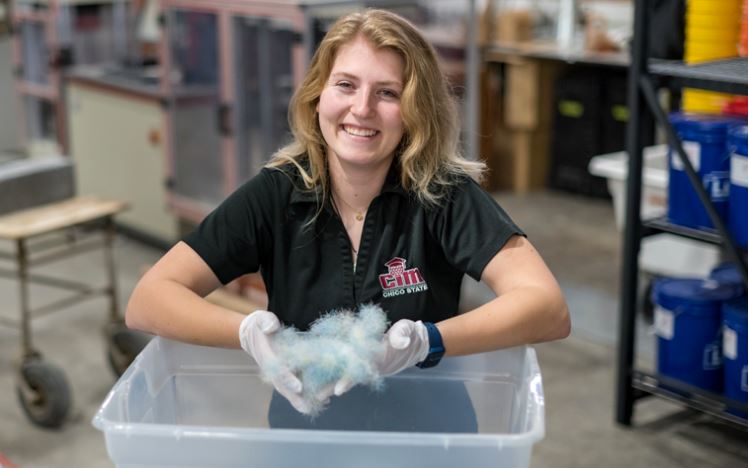
This article originally appeared on today.csuchico.edu.
Chico State’s CIM program is one of just five in the United States and benefits from industry partnerships and alumni support to help it thrive. In addition to learning the science of the evolving concrete industry, students also learn how to lead in the boardroom through the integration of business administration courses.
Graduates often go on to jobs in project and operation management, sales and marketing, field engineering, quality control, and lab research. Others work directly with concrete as specialists, plant managers, or researchers.
“When someone wants a career that is hands-on, involves working with people, requires multiple skills to be successful, and deals with a product that makes an outstanding building, home, bridge, whatever, it’s tough to beat concrete,” said Dana Davis, president of Teichert Materials and one of the program’s co-founders. “Regardless of what your career interests are, you can find it here and in a product that is vital to our everyday lives.”
NPCA and the NPCA Foundation support Chico State and other university engineering programs through grants and other programs.
As part of his studies, senior undergraduate student Bryson Bowen was challenged to create a startup company—planning everything from the structure and expenses to the yard design and employee needs.
But no experience in college, he said, can match the National Precast Concrete Association’s (NPCA) student competition, where students take an existing construction project and plan every aspect themselves. Finalists are invited to The Precast Show, where they present for judges. After participating on Chico State’s winning team in 2021, he led the team as captain this year to take first place once again in 2022.
With a team of some of his most promising classmates, Bowen worked with an industry advisor twice a week, drafted a 35-page report, and gave a sales pitch to the convention audience, explaining how the team would use preformed box culverts to build a pedestrian underpass in Colorado under a state highway. It was the perfect application, he said, of what they learn in the classroom in a real-life environment.
“This is just a program unlike any other,” he said. “It’s not really known, but if you do know about it, there are so many opportunities. Other majors find a lot of competition in the job market and have to hunt for employers, but as such a unique program, the job offers basically come rolling in for our CIM grads.”
Leave a Reply